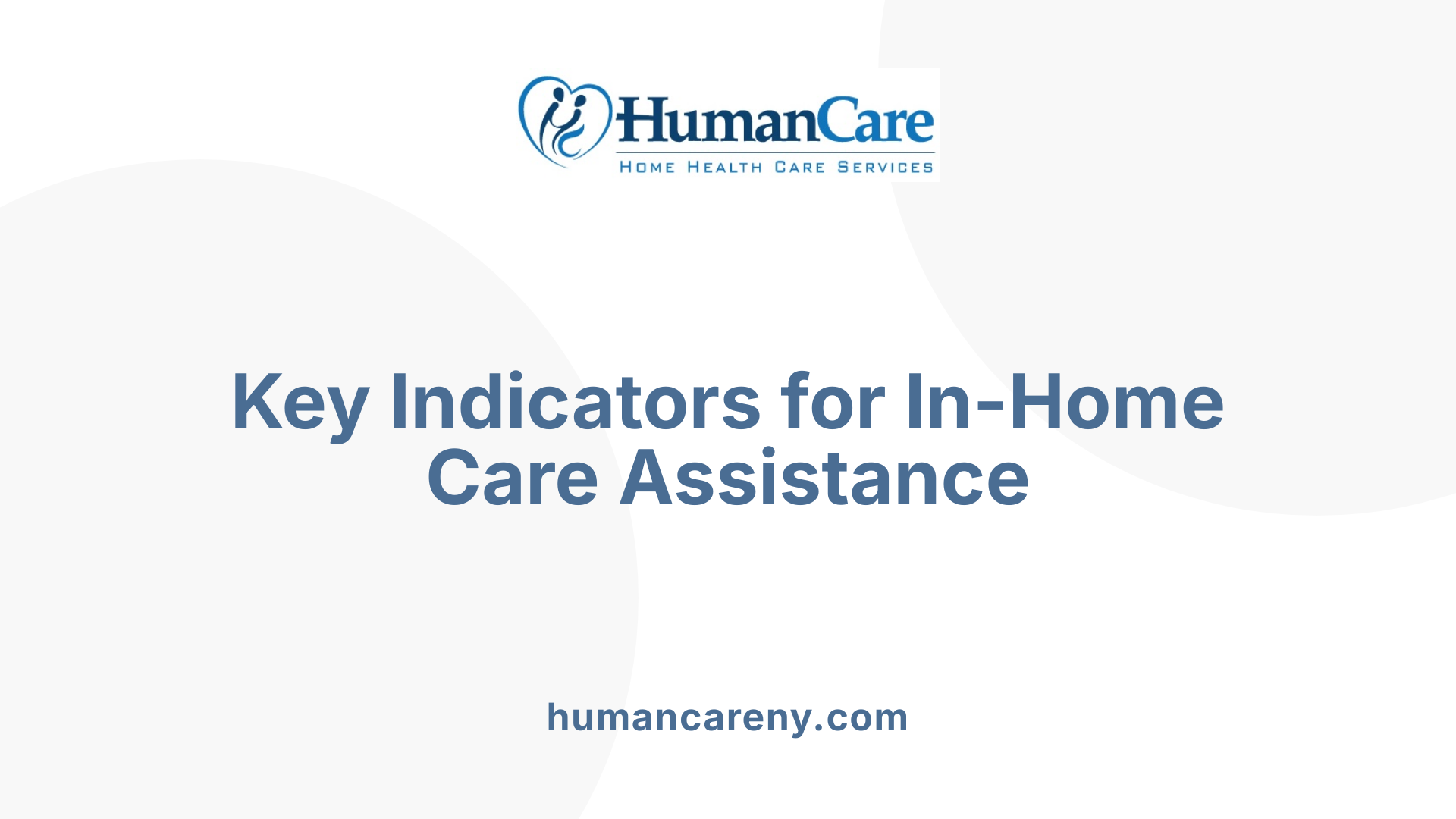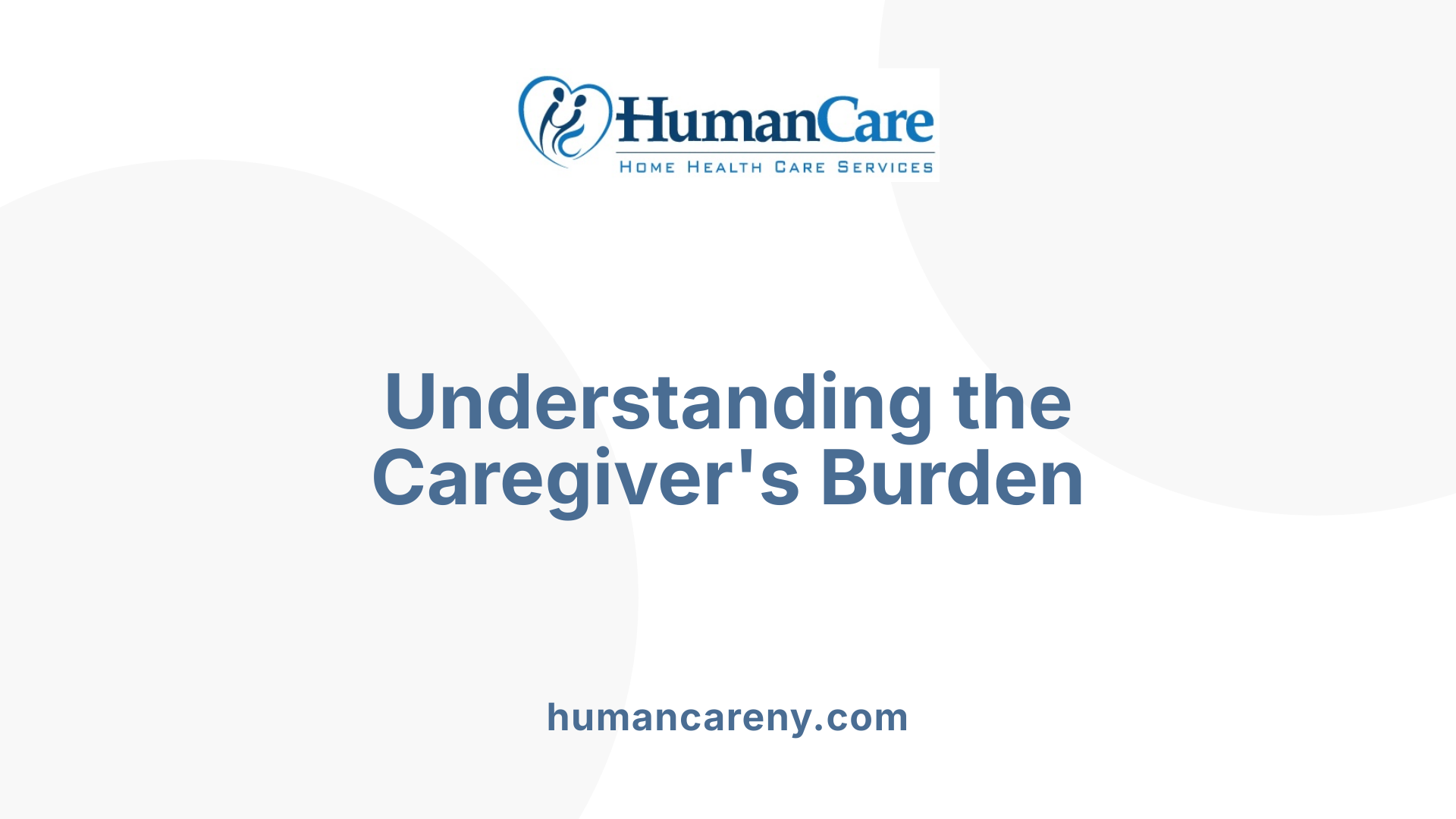How to Determine if In-Home Care is Right for Your Loved One
Recognizing the Need for Change: Is Home Care the Solution?

Understanding the Signs and Making Informed Decisions
When caring for an aging loved one, knowing when to transition to in-home care is vital. Recognizing the signs, understanding the emotional, physical, and financial aspects, and comparing care options are key steps in making an excellent caregiving decision. This guide will help you navigate these aspects and ensure your loved one's well-being remains a top priority.
Identifying the Signs That Indicate a Need for In-Home Care

What signs indicate a need for in-home care for a loved one?
Recognizing when your loved one may need in-home care involves paying attention to several indicators that reflect their physical and mental well-being. Here are key signs to look for:
Physical Signs: Noticeable weight loss, poor nutrition, and a decline in personal hygiene are strong indicators. If your loved one struggles with daily tasks like bathing, grooming, or cooking, this suggests a need for assistance, particularly if mobility issues are present.
Cognitive Issues: Increased forgetfulness, alongside difficulty managing medications or finances, may signify cognitive decline. Changes in personality, such as confusion or misunderstanding others, highlight the necessity for supportive in-home care.
Behavioral Changes: Withdrawal from social activities or hobbies often leads to feelings of isolation, which can worsen mental health. Signs of depression, such as irritability or a lack of interest in previous activities, are common red flags.
Safety Concerns: Frequent falls, unexplained bruising, or living in untidy conditions can pose serious safety risks. If driving skills diminish, your loved one may require transportation assistance.
Proactively addressing these signs can improve safety and enhance your loved one’s quality of life through appropriate in-home support.
Evaluating Emotional, Physical, and Financial Aspects of Caregiving

How can I evaluate the emotional, physical, and financial aspects of caregiving?
To evaluate the emotional, physical, and financial aspects of caregiving, it is crucial to recognize how these burdens intersect and impact overall well-being. Here are some key points to consider:
Emotional Impact
- Stress Levels: Caregiving can lead to heightened stress, particularly during challenging situations such as managing incontinence or health crises.
- Feelings of Guilt: Many caregivers struggle with guilt when accepting help or considering in-home care for their loved ones, potentially leading to isolation.
- Social Isolation: Caregivers may find themselves withdrawing from their social networks, exacerbating feelings of loneliness.
Physical Demands
- Exhaustion: Tasks like toileting assistance or mobility aid can lead to significant physical strain, increasing the risk of caregiver burnout.
- Health Concerns: Prolonged caregiving without adequate breaks can lead to health issues, including chronic fatigue and emotional distress.
Financial Considerations
- Cost of Care: Out-of-pocket expenses for caregiving supplies and services can accumulate, impacting the caregiver's financial stability.
- Loss of Income: Some caregivers may reduce work hours or leave jobs entirely, negatively affecting their financial resources.
Utilizing available support networks, respite care, and self-care strategies are crucial for managing these burdens and promoting caregiver well-being.
Exploring Different In-Home Care Options

What types of in-home care options are available?
In-home care options can be categorized into three main types:
Nursing Care: This service provides medical attention for individuals needing ongoing support after hospital discharge. It may include wound care, medication administration, and monitoring of vital signs.
Home Health Care: Involves skilled assistance for patients recovering from illnesses or surgeries. Typical services are available for a limited duration and can include therapy sessions and health monitoring.
Non-Medical Home Care: Focused on aiding with daily activities, this type emphasizes support such as personal care, companionship, and light housekeeping. The goal is to promote independence among seniors.
Other valuable services may include:
- Meal Delivery: Ensuring that proper nutrition is maintained.
- Transportation Assistance: Helping seniors attend appointments or run errands.
- Respite Care: Providing temporary relief for family caregivers.
- Adult Day Care Programs: Offering a structured environment for socialization and activities during the day.
Individuals can choose to hire caregivers through agencies or opt for private hiring. Volunteer services are also an option for those facing financial constraints. Understanding these various services allows families to tailor care to their loved one's specific needs.
Approaching Care Discussions with Family and Healthcare Professionals

How should I approach discussions about care with family members and healthcare professionals?
Engaging in discussions about care with family members and healthcare professionals requires an approach rooted in empathy and clarity. Here are some effective strategies to consider:
- Open Communication: Foster a space for open dialogue where everyone feels comfortable sharing their thoughts. This helps in openly addressing concerns and preferences regarding care.
- Involve Everyone: Ensure both the patient and all relevant family members participate in the conversation. Their input is vital to respect the patient's wishes and preferences.
- Use Clear Information: Tailor the information being shared to the audience’s understanding. Utilize clear examples and explanations of the patient's condition and care options available.
Involving family and patient
Incorporating the patient in care discussions can encourage a sense of agency, making them feel valued. This involvement not only strengthens family bonds but also aligns care with the individual’s needs.
Structured family meetings
Setting up structured family meetings can be beneficial. These gatherings can clarify roles, address any misunderstandings, and ensure everyone is aligned on care goals. Regularly scheduled discussions allow for ongoing reassessment as health circumstances evolve, ensuring that care choices remain suitable and respectful of the patient’s wishes.
This respectful and organized approach can ease the anxiety surrounding care decisions, promoting collaborative efforts towards the well-being of the loved one.
Managing Caregiver Guilt and Effective Coping Strategies

Acknowledging Caregiver Guilt
Caregiver guilt is a frequent emotional experience for those supporting a loved one with health issues. Many caregivers grapple with feelings of inadequacy, wishing they could do more, or wishing for the caregiving journey to be easier. Recognizing that these feelings are common is the first step to managing them effectively.
Support Resources
Connecting with others can significantly ease caregiver guilt. Support groups, whether in-person or online, provide a safe space to share experiences and feelings. Talking to friends or family members who understand your situation can also offer relief and perspective. Consider reaching out to community resources, where assistance and guidance can further alleviate feelings of isolation.
Self-Care Practices
Proactive self-care is essential for caregivers to combat guilt. Schedule regular breaks to recharge your emotional and physical well-being. Engage in activities that you enjoy, whether it’s reading a book or taking a walk. Letting go of perfection can also be liberating; focus on the positive aspects of caregiving, like the love shared and the moments of joy between you and your loved one.
In summary, managing caregiver guilt involves recognizing it, seeking support, and prioritizing self-care, all of which contribute to healthier emotional resilience.
Comparing Benefits of In-Home Care to Other Care Options
How do the benefits of in-home care services compare to other care options?
In-home care services provide numerous advantages that make them an attractive option compared to nursing homes. Notably, they allow seniors to remain in their familiar environment, significantly reducing stress and helping maintain established routines. This is especially important for individuals battling memory issues, as being in a known setting can enhance their overall comfort and stability.
Advantages of in-home care
One of the standout benefits of in-home care is the level of customization it offers. Care plans can be tailored specifically to each loved one's unique needs, allowing for a more personalized approach to care. Flexible scheduling ensures that caregivers can work around the individual’s routines and preferences, which fosters a sense of independence.
Customizable care plans and cost-effectiveness
In terms of cost-effectiveness, in-home care can prove to be more economical in the long run. Families are only charged for the specific services required, which helps control costs better than nursing homes. Nursing facilities typically have higher rates associated with comprehensive, round-the-clock care.
In summary, in-home care promotes independence, comfort, and often leads to better health outcomes for older adults compared to institutional options.
| Benefits | In-Home Care | Nursing Homes |
|---|---|---|
| Environment | Familiar surroundings | New, unfamiliar environment |
| Personalization | Highly customizable care plans | Standardized care routines |
| Cost | Generally more cost-effective | Higher overall costs |
| Comfort | Greater comfort and emotional support | Less personal attention |
Making the Right Decision for Your Loved One
Choosing the best care arrangement for your loved one is not just about addressing current needs but also preparing for future challenges and opportunities in caregiving. By recognizing signs, understanding different care types, maintaining open communication, effectively managing caregiver emotions, and comparing care options, families are better equipped to make informed, compassionate decisions. Ultimately, prioritizing the dignity, independence, and well-being of your loved one leads to improved quality of life and peace of mind for everyone involved.
References
- In-Home Senior Care: Signs Your Loved One Needs It - Health
- Caregiving: Knowing When It's Time for In-Home Help
- 3 Signs Your Loved One Needs Special Home Care Assistance
- Your Loved One Needs In-Home Care: How to Assess
- 5 Signs Your Loved One May Need In-Home Care
- When to Hire Professional In-Home Support for Caregiving
- 7 Signs Your Loved One Needs Home Care | Nurse Next Door




























































































